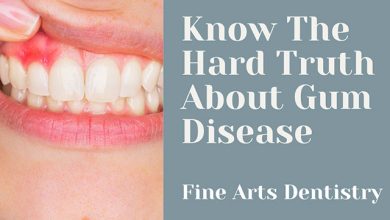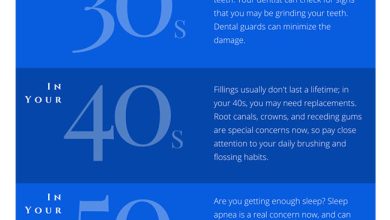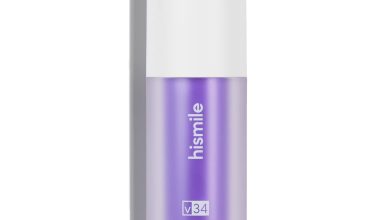Can Brushing Teeth Reverse Tooth Decay? Discover the Power of Good Oral Hygiene!
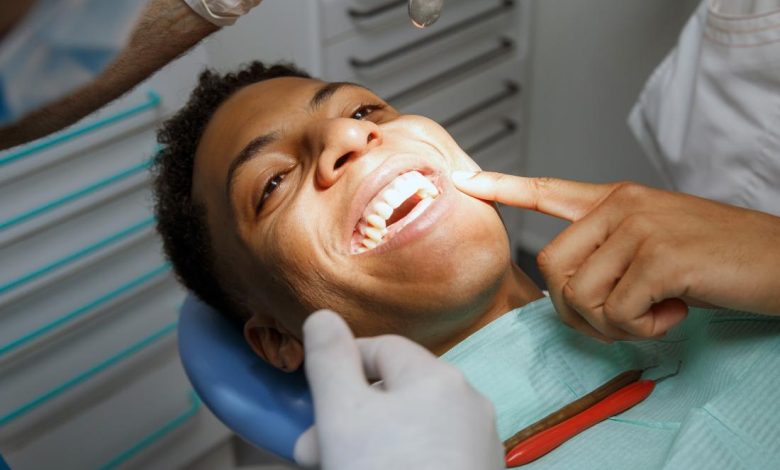
Brushing teeth alone cannot reverse tooth decay; it can only prevent further progression. However, regular brushing along with proper dental care can maintain oral health and reduce the risk of tooth decay.
Tooth decay occurs when the acids produced by bacteria in the mouth damage the tooth enamel. Brushing removes plaque, a sticky film of bacteria, from the teeth, preventing acid buildup. Moreover, brushing can strengthen weak areas of the enamel and make the teeth less vulnerable to decay.
Additionally, brushing with fluoride toothpaste can further protect against tooth decay by promoting remineralization of the enamel. Therefore, regular brushing is an essential part of maintaining good oral hygiene and preventing tooth decay.
The Importance Of Good Oral Hygiene
Good oral hygiene is essential for maintaining healthy teeth and preventing tooth decay. When it comes to oral hygiene, brushing teeth regularly is the cornerstone of a proper dental care routine. Brushing at least twice a day, using a fluoride toothpaste, can help remove plaque and bacteria that can lead to tooth decay.
Poor oral hygiene can have a significant impact on tooth decay. If you neglect to brush your teeth regularly or do not do it properly, plaque can build up, increasing the risk of cavities and gum disease. Plaque is a sticky film of bacteria that forms on teeth and produces acids that eat away at tooth enamel. Over time, this can lead to tooth decay.
By practicing good oral hygiene, you can reduce the risk of tooth decay and maintain a healthy smile. In addition to brushing, it’s important to floss daily and visit your dentist regularly for check-ups and cleanings. By taking these steps, you can help reverse the effects of tooth decay and keep your teeth and gums in excellent condition.
How Brushing Teeth Can Help Reverse Tooth Decay
Regular brushing of teeth is crucial for maintaining oral health and preventing tooth decay. But can it actually reverse tooth decay? The answer lies in understanding the mechanics of tooth decay reversal through brushing.
Brushing your teeth removes the plaque and bacteria that can lead to decay. The mechanical action of brushing helps to dislodge and remove the sticky film of plaque that forms on the surface of teeth. By regularly removing this plaque, you can effectively prevent decay and promote the remineralization process.
Key benefits of brushing teeth regularly include:
- Removing plaque buildup
- Preventing cavity formation
- Preventing gum disease
- Freshening breath
To facilitate the process, toothbrushes and toothpaste play a vital role. Toothbrush bristles reach between the teeth and along the gumline, where plaque accumulates, while toothpaste contains fluoride, which helps to strengthen the enamel and protect against decay.
So, by maintaining a regular brushing routine, using the right tools, and incorporating fluoride toothpaste, you can help to reverse tooth decay and maintain good oral health.
Tips For Effective Toothbrushing
htmlChoosing The Right Toothbrush And Toothpaste
To promote optimal oral health, it is crucial to select the right toothbrush and toothpaste. When choosing a toothbrush, consider the bristle type and size. Soft or medium bristles are recommended as they are gentle on the gums and tooth enamel. Additionally, select a toothbrush with a comfortable handle for better grip during brushing. As for toothpaste, look for ones containing fluoride, as it helps to strengthen tooth enamel and prevent decay. Avoid toothpaste with abrasive ingredients that may damage enamel over time.
The Correct Brushing Technique
Using the correct brushing technique is vital for effective oral care. Start by placing the bristles at a 45-degree angle against the gum line and brush in gentle, circular motions. Pay attention to both the front and back surfaces of the teeth, as well as the chewing surfaces. Remember to brush the tongue too, as it helps remove bacteria that cause bad breath. Brushing should be a thorough process, ensuring each tooth is cleaned properly.
Frequency And Duration Of Brushing For Optimal Results
To achieve optimal results, it is recommended to brush your teeth at least twice a day – once in the morning and once before bed. Brushing for a minimum of two minutes is ideal as it allows enough time to clean all surfaces adequately. It is important to note that brushing immediately after consuming acidic foods or drinks may damage the enamel, so waiting at least 30 minutes is advisable.
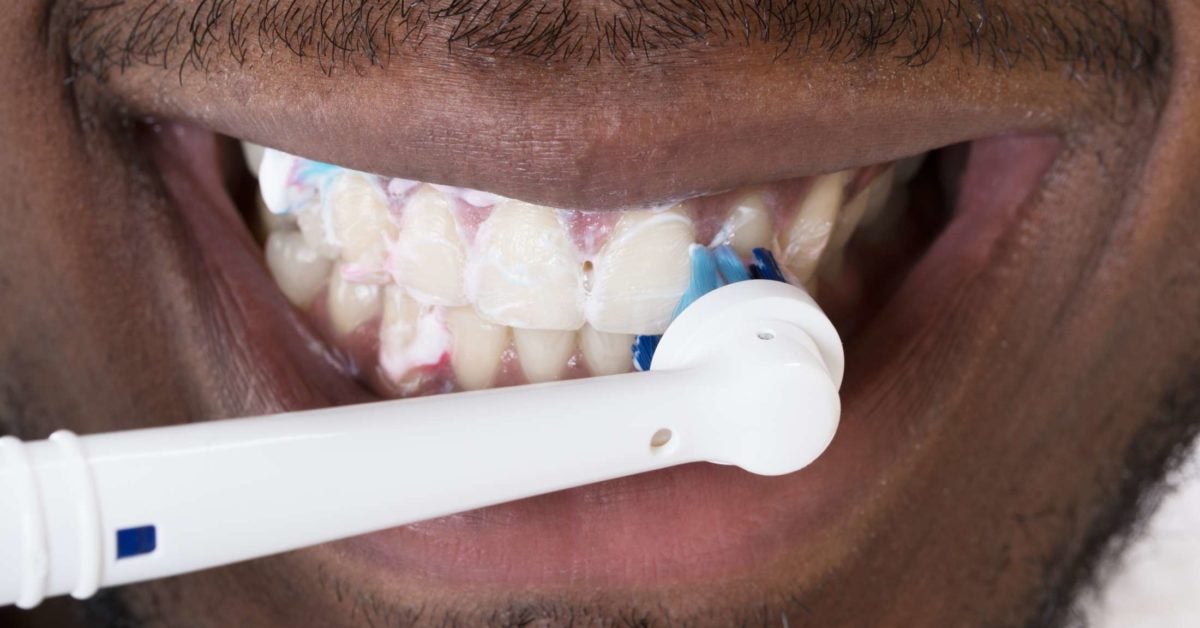
Credit: www.medicalnewstoday.com
The Role Of Diet In Preventing Tooth Decay
The role of a healthy diet in preventing tooth decay cannot be overstated. Certain foods and beverages, such as those high in sugar and acidity, can greatly contribute to the formation and progression of tooth decay. Consuming excessive amounts of sugary foods and drinks provides fuel for bacteria in the mouth, leading to increased acid production and subsequent enamel erosion. Acidic foods and beverages can directly erode the tooth enamel, making it more susceptible to decay.
To promote dental health, it is important to incorporate a balanced diet that is low in sugar and acidity. A diet rich in fruits and vegetables, whole grains, lean proteins, and dairy products provides essential nutrients for maintaining strong teeth and gums. Additionally, drinking plenty of water throughout the day helps to rinse away food particles and neutralize acids in the mouth.
Incorporating good oral hygiene practices, such as regular brushing with fluoride toothpaste, flossing, and routine dental check-ups, is essential in preventing tooth decay. By combining a nutritious diet with proper oral care, you can help maintain a healthy smile and potentially reverse the early stages of tooth decay.
| Nutritional Recommendations for Healthy Teeth |
|---|
| Limit consumption of sugary foods and drinks |
| Choose whole grains over refined carbohydrates |
| Incorporate fruits and vegetables rich in vitamins and minerals |
| Include lean proteins for optimal oral health |
| Consume dairy products for calcium and phosphorus |
| Drink plenty of water throughout the day |
The Importance Of Regular Dental Check-ups
Regular dental check-ups are vital for maintaining good oral health. While brushing and flossing at home are important for preventing tooth decay, professional oral care has its unique advantages. Oral health professionals have the expertise and tools to detect and treat early stages of tooth decay, minimizing the risk of it progressing into more serious issues.
During a dental visit, the dentist or hygienist will thoroughly clean your teeth and remove plaque and tartar buildup. This helps prevent cavities and keeps your teeth and gums healthy. Regular check-ups also allow the dentist to identify any potential problems before they worsen, such as gum disease or dental infections.
| Benefits of Regular Dental Check-ups | Recommended Frequency |
|---|---|
| Early detection and treatment of tooth decay | Every 6 months |
| Prevention of gum disease | Every 6 months |
| Identification of oral health issues | Every 6 months |
By attending regular dental check-ups and following the recommended frequency, you can improve your oral health and prevent future dental problems. Remember, the earlier any issues are detected, the easier and more cost-effective they are to treat.
Supplementing Brushing With Additional Oral Care Practices
When it comes to maintaining oral health, brushing teeth alone may not be enough to reverse tooth decay. To maximize the effectiveness of your oral care routine, it is important to incorporate other practices such as flossing and using mouthwash.
Flossing plays an essential role in preventing tooth decay by removing plaque and food particles from between the teeth and along the gumline. By reaching areas that a toothbrush may not be able to access, flossing helps prevent the buildup of plaque and reduces the risk of cavities.
Using mouthwash can also be beneficial in preventing tooth decay. Antimicrobial mouthwashes can help kill bacteria that cause dental plaque, reducing the risk of cavities and gum disease. Mouthwash also freshens breath and leaves your mouth feeling clean and invigorated.
In addition to flossing and mouthwash, another effective practice to consider is using interdental brushes. These small, thin brushes are designed to clean between the teeth and around dental appliances. They provide a gentle but effective way to remove plaque and food debris, further reducing the risk of tooth decay.
Incorporating these additional oral care practices into your routine can contribute to better oral health and help reverse tooth decay. Remember to consult with your dentist for personalized advice and recommendations.
The Role Of Smoking And Tobacco Use
Smoking and tobacco use are known to have a detrimental effect on tooth decay. The chemicals present in cigarettes and other tobacco products have the potential to damage teeth and gums, contributing to the development of tooth decay. Smoking may affect oral health in multiple ways. Firstly, it reduces saliva production, which plays a crucial role in neutralizing acids produced by bacteria in the mouth. This acid erosion weakens the enamel, making teeth more susceptible to decay. Additionally, smoking impairs blood flow to the gums, affecting their ability to fight infection and heal. Tobacco also stains teeth, causing them to appear yellow or brown. To improve oral health, quitting smoking is crucial. Strategies such as seeking support from healthcare professionals or joining smoking cessation programs can be helpful. Adopting good oral hygiene practices, such as regular brushing and flossing, along with visiting the dentist regularly, can further promote oral health.
The Effects Of Stress And Oral Health
Stress can have a significant impact on our overall health, including our oral health. Understanding the connection between stress and oral hygiene is crucial to maintaining a healthy smile.
Research has shown that stress can lead to a variety of oral health issues such as gum disease, teeth grinding, and dry mouth. When we are stressed, our bodies produce higher levels of cortisol, a hormone that can weaken the immune system and increase inflammation. This can make the gums more susceptible to infection and disease.
In addition to gum disease, stress can also contribute to teeth grinding or bruxism. This habit can wear down the enamel, leading to tooth decay and sensitivity. Increased stress levels can also result in decreased saliva production, causing dry mouth. Saliva plays a vital role in preventing tooth decay by washing away food particles and neutralizing acids.
To manage stress and promote oral health, there are several techniques you can try. These include practicing stress-reducing activities like exercise, deep breathing, and meditation. It is also essential to maintain a proper oral hygiene routine, including regular brushing and flossing, as well as visiting the dentist for check-ups and professional cleanings.
The Impact Of Medications On Oral Health
The Impact of Medications on Oral Health:
The use of certain medications can have a significant impact on oral health. Some medications may even contribute to tooth decay. It is important to be aware of this potential side effect and take steps to minimize its impact.
| Medications that may contribute to tooth decay |
|---|
| Antihistamines |
| Antacids |
| Anti-inflammatory drugs |
| Antidepressants |
| Diuretics |
| Chemotherapy drugs |
Strategies for minimizing dental side effects of medications:
- Practice good oral hygiene by brushing your teeth twice a day with a fluoride toothpaste and flossing regularly.
- Limit the consumption of sugary and acidic foods and beverages.
- Visit your dentist regularly for check-ups and professional cleanings.
- Discuss your medications with your dentist and healthcare provider to evaluate the potential dental side effects.
- If necessary, explore alternative medications that may have fewer dental side effects.
Frequently Asked Questions On Can Brushing Teeth Reverse Tooth Decay?
Does Toothpaste Reverse Tooth Decay?
Toothpaste helps prevent tooth decay by removing plaque and harmful bacteria. However, it cannot reverse existing tooth decay. Regular brushing, flossing, and dental check-ups are essential for maintaining oral health and preventing decay.
How Long Does It Take To Reverse Tooth Decay?
To reverse tooth decay, the time it takes varies based on the severity and individual circumstances. Regular oral hygiene practices, such as brushing and flossing, combined with a healthy diet and dental treatments, can help stop and even regenerate tooth decay.
It’s best to consult with a dentist for a personalized plan.
What Neutralizes Tooth Decay?
The best way to neutralize tooth decay is through proper oral hygiene practices, including regular brushing and flossing. Using fluoride toothpaste and mouthwash can help strengthen tooth enamel and prevent decay. Additionally, maintaining a healthy diet low in sugary foods and drinks can also help reduce the risk of tooth decay.
Can Brushing Teeth Really Reverse Tooth Decay?
Brushing teeth alone cannot reverse tooth decay, but it can help prevent it from progressing further. Regular brushing, along with proper oral hygiene practices, reduces the risk of cavities and gum disease.
Conclusion
Overall, regular brushing is an essential part of maintaining good oral hygiene and preventing tooth decay. By removing plaque and bacteria from the teeth and gums, brushing helps to minimize the risk of cavities and gum disease. However, it is important to note that brushing alone cannot reverse tooth decay that has already occurred.
Instead, professional dental treatment is necessary to effectively address and reverse the decay. Therefore, while brushing is a necessary routine, it should be complemented with regular dental check-ups and treatments for optimal oral health.

